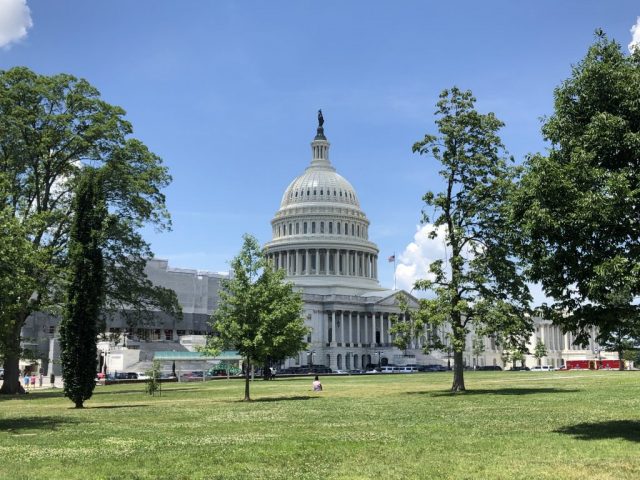Washington, D.C. – Yesterday, Representative Brad Wenstrup (R-OH) joined Representatives Darin LaHood (R-IL) and Suzan DelBene (D-WA) to introduce the bipartisan Affordable Housing Credit Improvement Act of 2023 to support the financing of more affordable housing by expanding and strengthening the Low-Income Housing Tax Credit (Housing Credit), our country’s most successful affordable housing program. If enacted, this legislation would help build over 2 million new affordable homes over the next decade.
The nationwide housing crisis continues to worsen. Currently, nearly one-in-four renters, over 10 million families, spend more than half of their household income on rent, cutting into other essential expenses like child care, medication, groceries, and transportation. At the same time, nearly 600,000 Americans are experiencing homelessness on any given day, an increase over pre-COVID levels.
Senators Todd Young (R-IN) and Maria Cantwell (D-WA) introduced similar legislation in the Senate.
“Americans should be empowered and have the tools they need to lift themselves out of poverty. Making sure there is enough safe, affordable housing for those who qualify is one way to achieve this, and a need I hear across Southern Ohio. I am proud to once again lead the Affordable Housing Credit Improvement Act with my colleagues to help strengthen and expand the Low Income Housing Tax Credit program. In addition to growing affordable housing development across our communities, this legislation will also help homeless youth and veterans who seek access to affordable housing while pursuing an education. Affordable housing is one step towards the American dream, and I look forward to working with my colleagues to pass this bipartisan and bicameral bill,” said Rep. Wenstrup.
“Affordable housing is vital for families throughout Illinois and the Low-Income Housing Tax Credit continues to be an important tool to drive investment in the affordable rental housing market,” said Rep. LaHood. “As I travel throughout communities in the 16th District of Illinois, I constantly hear about the affordable housing crisis, especially in our rural areas. This bipartisan bill will modernize the Low-Income Housing Tax Credit and help expand our housing supply, strengthening communities and supporting economic development in Illinois and across the county.”
“As I travel the country, in nearly every community – urban to rural, red to blue – I hear how the lack of affordable housing is stretching family budgets and making it harder for employers to find workers. We know that stable housing increases the likelihood of stable employment and stable families,” said Rep. DelBene. “The scale of the affordable housing crisis is immense and it requires bold solutions. Passing our legislation will help jumpstart more affordable housing construction so more Americans can put a roof over their heads and better provide for their families.”
Since its creation, the Housing Credit has built or restored more than 3.5 million affordable housing units, nearly 90% of all federally funded affordable housing during that time. Roughly 8 million American households have benefitted from the credit, and the economic activity that it generated has supported 5.5 million jobs and generated more than $617 billion in wages.
The bill would support the financing of over 2 million new affordable homes by:Increasing the amount of credits allocated to each state. The legislation would increase the number of credits available to states by 50 percent for the next two years and make the temporary 12.5 percent increase secured in 2018 permanent—which has already helped build more than 59,000 additional affordable housing units nationwide.Increasing the number of affordable housing projects that can be built using private activity bonds. This provision would stabilize financing for workforce housing projects built using private activity bonds by decreasing the amount of private activity bonds needed to secure Housing Credit funding. As a result, projects would have to carry less debt, and more projects would be eligible to receive funding.Improving the Housing Credit program to better serve at-risk and underserved communities. The legislation would also make improvements to the program to better serve veterans, victims of domestic violence, formerly homeless students, Native American communities, and rural Americans. Last Congress, the Affordable Housing Credit Improvement Act had 207 bipartisan cosponsors in the House of Representatives and 43 in the Senate.












